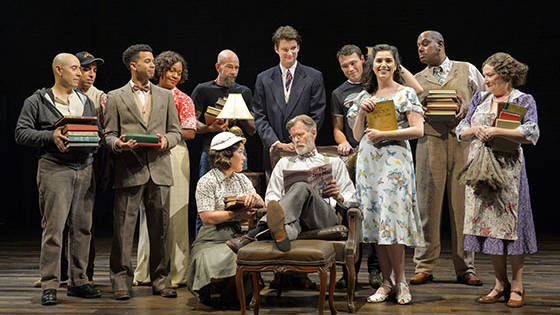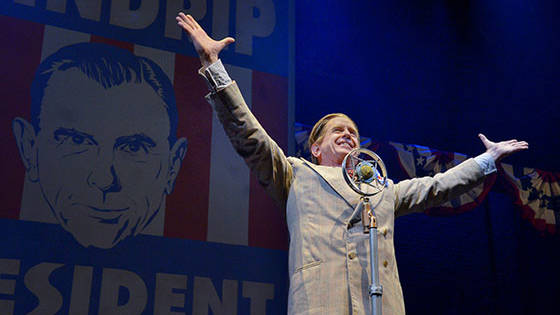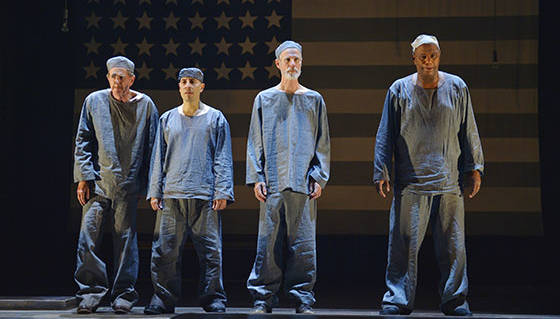The Berkeley Repertory Theatre’s artistic director Tony Taccone reminds us in his program notes that he works for a not-for-profit organization, and that he is “forbidden, by law, to take political positions.” Though he quickly assures us that he and Berkeley Rep can overcome these limitations, “in the work we produce and the culture we create,” and rather wistfully adds, “there’s nothing to stop you from imagining my opinion.”
Since the Rep is opening its season with the premiere of Taccone and Bennett S. Cohen’s adaption of Sinclair Lewis’ 1935 anti-fascist novel, It Can’t Happen Here, it seems impossible not to “imagine” what Taccone, the theater, Berkeley, or anyone else in the Bay Area thinks. Yet in raising that question, Taccone inadvertently uncovers a hornet’s nest of political assumptions that the production leaves unattended and unanswered.
The play begins with the actors prepping us on how to behave, respond, and think. We will be expected to perform the role of crowd energetically, no matter our true political feelings. We are told that the casting is not historically accurate in case anyone has “a problem with this,” and that “any resemblance in the play to current events is purely coincidental.” There are many winking asides after this last comment.

It’s clear that the writers and the company have no idea of how to approach the material, and it speaks to the paucity of their theatrical imagination that their first move is an attempt at a faux-Brechtian engagement with the audience. Why bother to break the fourth wall to merely comfort and assure us that we all really understand what’s going on, that we all get the connections, and that we’re all in this together? I’m not even sure that’s a position from which you can think in a political manner.
From there, the play shifts registers to a rather old-fashioned mode of presentation, where everything is about the set-up, or, in the parlance of television show runners, “world building.” We meet our hero, the liberal, free-thinking journalist Doremus Jessup, his large family (almost impossible to keep track of or care for), and his community of extended family members and civic leaders. And we learn what might constitute a normal day in Fort Beulah, Vermont — a Fourth of July picnic — all the while catching glimpses (through a political meeting, a radio broadcast and other vignettes) of the rise of right-wing populist Buzz Windrip (a terrific David Kelly). It’s a long and laborsome slog to get to the beginnings of anything approaching drama.



